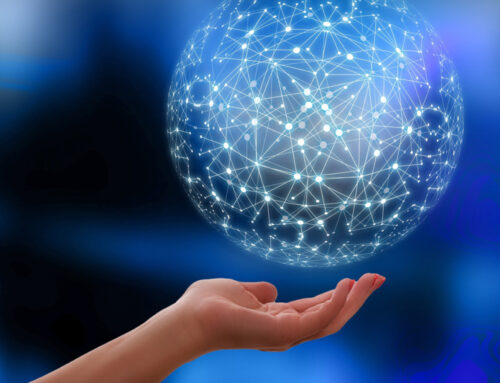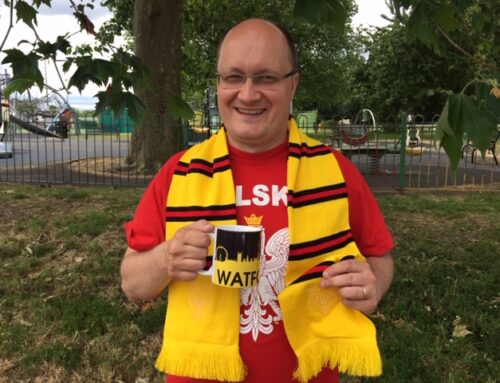Michal Siewniak, a native of Poland, in Great Britain with his family for 14 years,
has been a member of the International Mppu Center since September 2019; a
professional teacher, in the last 10 years he has worked as a Community
Development Manager: in this role, he has managed local, provincial and
regional projects for development and community participation. He was an
advisor to Welwyn Hatfield, where he also founded the Polish Community
Forum. He is the trustee of various organizations, including “New Europeans”.

Introduction
I found out about the result of the British EU Referendum on a sunny morning in Rome where I
was attending an interesting meeting of people who are involved in public and civic life. It was a
meeting organised by the Focolare Movement, community which I have been part of for 20 years.
It is more than 3 years since the vote took place. A lot has been said about the Brexit, its
implications and potential consequences. Even though UK should be leaving the EU in the next 21
days, it still feels like the ‘Brexit saga’ will never stop and the ‘political turmoil’ will be felt by both:
EU and Britain for many years to come.
As an EU migrant, someone who doesn’t hold the British citizenship, I have been part of the
referendum debate for quite some time. I couldn’t vote, but I was very keen to get across the
reasons behind staying. When I reflect on last 3 years, I must admit that they have been quite
‘extraordinary’. If someone had told me that UK will vote to leave the EU, I would have not
believed. The result was close, some continue to argue that to close however the message was
clear – ‘we want our country back, we want to control our borders, we will be better off outside
the EU’.
What happened since? Three Prime Ministers, General Elections, Parliament unable to make any
progress regarding Brexit, frustrations, anger within the Houses of Parliament, in our
neighbourhoods and across Europe. The list is long and it goes on…This vote and current chaos is
the ‘fruit of democracy’! Sir Winston Churchill, one of the most influential politicians of the
previous century, has once descried democracy as “the worst form of government, except all
those other forms that have been tried from time to time”.
Can disunity and divisions can be healed?
A lot has been also said about the negative impact of Brexit on the UK economy. But now, let’s put
aside the economical argument, GDP (growth domestic product), trade, jobs, opportunities to live,
work and study freely in any of the European countries. That’s a whole other story. Personally, I
am more worried about divisions, endless and often pointless debates, hate fuelled by some of
the politicians and so many other elements have ‘helped’ to create an environment of disunity and
disillusion.
I spent last Saturday morning with the Member of the European Parliament (MEP), Dr Barbara
Gibson. I helped her to organise two visits to the Polish Saturday Schools in Hertfordshire. Children
didn’t know much about the role of an MEP however when we asked whether they heard about
Brexit, everyone raised their hand!
Brexit has dominated our lives for such a long time and we are tired…3 years on months on and
nothing has really changed…I lived in number of European countries but I don’t remember seeing
anything like this. It seems like we completely lost the ability to listen to each other, have a proper
and mature debate on issues which affect us all: globalization, migration, refugee crisis. It is
difficult to predict, particularly now when the PM is ‘keen’ to implement ‘hard Brexit’ how it would
affect our long-term future and the future of many people across the continent however I know
that it could be the end of the ‘united Europe’. I am in a way sad that the British voters decided to
‘walk away’ from a project which overall produced a lot of positive outcomes. I also think that the
UK’s ability to demonstrate modern and forward thinking society where people from all sorts of
walks of life are treated the same, may be also affected. On the other hand, is this historic vote
and people’s decision to vote leave telling us something? Is Europe going in the wrong direction?
Is it time for us to stop and think about the direction of our continent? Has Europe lost its
identity? One of the Focolare priest said in one of our recent meetings that ‘God loves a crisis’.
Wow I felt, this was quite a statement! I often wonder whether today, more than ever before, we
need ‘God’s intervention’. Can he help to change our minds and hearts?
Even though I try to understand why people might have voted to leave, I am upset that liberal
Britain which cherishes every opportunity to build bridges and fosters integration has decided, in
one way or another, to take a step back. I am worried that Britain has chosen the ‘isolation path’. I
was always felt that we are stronger if we stay together. I always believed that you are weaker if
you are on your own.
Re – building trust, so damaged during this campaign, may take a lot of time. I hope it won’t affect
building the cohesive society which I want to be part of.
How will Brexit affect EU nationals?
The Brexit caused quite a lot of uncertainty for many EU citizens, including people like me. I also
often wonder what will happen to many EU citizens who made Britain their home. Most of us are
here for good reasons. However, will we be seen as “`intruders” because of where we come from
and irrespective of what we bring? A lot of EU nationals have already left the UK and I think that
this trend might continue, especially if UK will decide to leave without a deal.
Living in Britain and being able to travel freely gave me a lot. UK enabled me to improve my life
chances and my language skills. It has also helped me to break down various barriers and
recognise the importance of diversity. Settling in the UK, trying to be part of the local community,
encouraged me to get to know other cultures and people of other faith groups. The whole
experience has broadened my horizons and it made me more tolerant and rounded person. a year
or so ago my eldest daughter, Maria, had a non – uniform day. All children had an opportunity to
express themselves. They all did that in many different ways. Our Maria decided to wear Polish
top and Croatian scarf. My wife comes from the Croatia whereas I am Polish. She was really happy
to wear it and she really feels proud to be ‘British, Polish, Croatian and VERY European. I’ve asked
Maria, whether she is happy to be of ‘mixed heritage’. I was really pleased when she said: ‘When I
talk to my friends, I always say that my dad is from Poland, mum from Croatia & has Italian
grandparents (!) and I was born in the UK’. I said: so why is it important for you? Maria replied: ‘It
is because I have many opportunities to travel, learn other languages & spend holidays (without
spending loads!) with my relatives in different parts of Europe’. I said to myself, this says it all.
What is my role in the ‘Brexit debate’?
As a local community activist, former Local Councillor, I almost every day, ask myself what is my
role today in terms of promoting the ‘culture of understating’. Do I sit and watch ‘passively’ the
world around me or shall I take an active role in building bridges, promoting justice and enhancing
collaboration?
I would like to think that I have a very pro-active approach to life. If you want to change
something, even a small thing locally, you need to act on it and bring other similarly minded
people to join your ‘team’. Changing perception, using role models as a way to break down
barriers, championing what is good in our society is so important!
I strongly believe that, particularly today, there is so much more to do if we want to advance our
democracy and if we want to build a country which serve us all. More importantly, we all have a
huge part to play! Social action, community based activities, many of which are delivered in
partnership with local agencies may help to empower individuals and build the confidence of
residents, particularly those from disadvantaged backgrounds.
I think that today, when there is a lot of apathy and where so many people feel disconnected and
left out, understanding democracy can create a sense of ‘ownership’ over our own circumstances.
We, residents, by becoming proactive members of our communities can move away from being
victims of our own circumstances.
Last few years, despite huge political obstacles, has proved to me, more than ever before, that in
order to achieve great things in life, we have to collaborate and work together. A real partnership
is a platform which recognises an input and contribution of each partner involved. The benefits of
partnership working are endless and I hope that we will all continue on this journey which is
instrumental in building a safer, healthier and more tolerant society.
After the referendum, a very good friend sent us this text: “To all my European friends, sorry
about the vote. I still love you. You are welcome to my country. I will continue to cheer for your
football teams.” Today, 3 years on, it does make me cry. Thank you to all people who stay strong
in building bridges among people.
In the spirit of the Focolare Movement and charism of unity, I wanted to finish off by saying: Let’s
embrace every opportunity which comes our way to be ‘community champions, let’s see the light
in the tunnel, even when it is difficult. Let’s try our hardest to become the ‘beacons of unity’ and
let’s try to find practical solution to the global issues which affect us all. We can’t give up! The
united world is possible!
Michal Siewniak



Leave A Comment